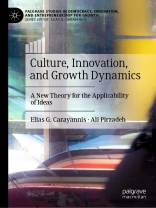This book argues that ideas in the social realm are the context-bound products of distinct histories and cultures and thus cannot be co-opted across place and time. When ideas are used out of context, they become mere empty words that are depicted as absolute ideals, independent of the specific historical circumstances in which they were conceived. Therefore, highly ideologically guidelines based on one-size-fits-all principles are doomed to fail. The book emphasizes that the dominant Western intellectual paradigm has not improved human society in either Western or non-Western parts of the world. Some of the book’s objectives are to rethink the dominant paradigm and invent a new world. We face an existential crisis that requires a new vision of the world and its well-being: one that is more inclusive and attentive to the diversity of people, histories, and cultures. We must remember that diversity in beliefs and values is the very essence of our humanity. This seminal work is essentialreading for researchers of economic growth and development, political science, and innovation.
Table of Content
1.Introduction.- 2.Ideas as a Medium.- 3.Political Culture and Ideology.- 4.Revisiting the Dominant Paradigm.- 5.Concluding Remarks
About the author
Elias G. Carayannis is Full Professor of Science, Technology, Innovation and Entrepreneurship, as well as co-Founder and co-Director of the Global and Entrepreneurial Finance Research Institute (GEFRI) and Director of Research on Science, Technology, Innovation and Entrepreneurship in the European Union Research Center (EURC) at the School of Business at George Washington University, USA. Carayannis’ teaching and research activities focus on the areas of strategic Government-University-Industry R&D partnerships, technology road-mapping, technology transfer and commercialization, international science and technology policy, technological entrepreneurship and regional economic development.
Ali Pirzadeh has more than 25 years’ experience as an Economist in the fields of Development Economics, Institutional Economics, Macroeconomics, and Transitional Economies. He has taught, researched, and worked with universities, government institutions and international organizations in Eastern Europe, Central Asia and Middle East. Pirzadeh received his Ph D in Economics and MS in Economics from University of Washington, his MA in Sociology from University of Massachusetts, and his MEd in Education from Suffolk University.












